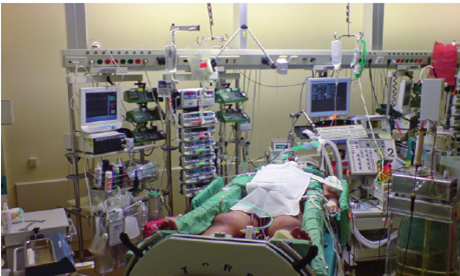The intersection between medical advances and human mortality mean we now need “greater wisdom” in evaluating the good of the patient, Pope Francis says.
He was speaking to the president of the Pontifical Academy for Life and European World Medical Association representatives who met last week to discuss “end of life” issues.
“Greater wisdom is called for today, because of the temptation to insist on treatments that have powerful effects on the body, yet at times do not serve the integral good of the person.”
This wisdom is needed to analyse issues in relation to “overzealous treatment,” patient and doctor relationships, global inequality in healthcare, the need to be close to the sick and to pay attention to the needs of the most vulnerable.
Sometimes withdrawing from overzealous treatment is wiser than using them, he said.
Francis drew some of his comments from Pope Pius XII’s 1957 address to anesthesiologists and intensive care specialists.
These included his comment that it is “morally licit to decide not to adopt therapeutic measures, or to discontinue them, when their use does not meet that ethical and humanistic standard that would later be called ‘due proportion in the use of remedies.’
“It thus makes possible a decision that is morally qualified as withdrawal of ‘overzealous treatment’,” Francis said, adding that “such a decision responsibly acknowledges the limitations of our mortality, once it becomes clear that opposition to it is futile.”
He said understanding this promotes a focus on accompanying the dying.
While it means ethically avoiding excessive treatments, “it is completely different from euthanasia, which is always wrong, in that the intent of euthanasia is to end life and cause death.”
He acknowledged many cases and situations can be “difficult to evaluate,” and that there is no one-size-fits-all rule that can be adopted.
“There needs to be a careful discernment of the moral object, the attending circumstances and the intentions of those involved,” he wrote.
The patient needs to be at the centre of any discussions and have the right to decide on treatment by discussing it with their doctors.
These discussions include deciding the “proportionality of the remedy” and “refusing it if such proportionality is judged lacking,” Francis said.
He also pointed out the “personal and relational elements of the patient’s life and also death”, which are “after all the last moment in life,” must be considered when evaluating his or her care.
Source
